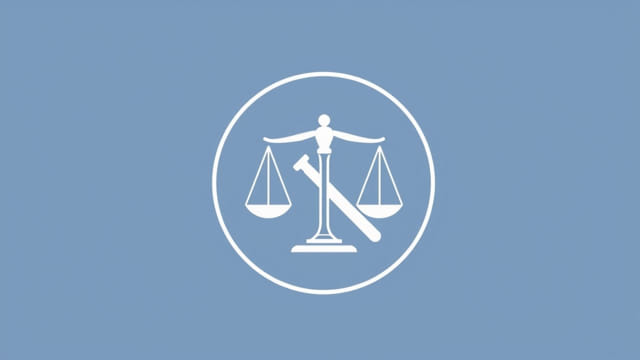The Delaware Declaratory Judgment Act is a vital piece of legislation that plays a crucial role in clarifying legal rights and obligations before disputes escalate into full-blown litigation. This act allows individuals, businesses, and other entities to seek a judicial determination regarding the validity, interpretation, or scope of a contract, statute, or legal relationship. By providing a legal avenue to resolve uncertainties, the act contributes significantly to legal predictability, helping parties make informed decisions without waiting for an actual breach or conflict to occur. Delaware, known for its business-friendly legal system, has fine-tuned its version of the Declaratory Judgment Act to align with the needs of corporate entities and other stakeholders operating within the state.
Overview of the Delaware Declaratory Judgment Act
The Delaware Declaratory Judgment Act is codified under Title 10 of the Delaware Code, specifically in Chapter 65. The primary purpose of this legislation is to allow courts to render decisions that declare the rights or legal relations of parties involved in an actual controversy. Unlike other legal actions that require a violation or breach to occur, declaratory judgments serve a proactive purpose by addressing legal uncertainty before it results in a lawsuit.
What Is a Declaratory Judgment?
A declaratory judgment is a binding court decision that outlines the rights, duties, or obligations of each party in a legal relationship. It does not necessarily require any further action, such as awarding damages or issuing injunctions. Instead, it provides clarity and direction. In Delaware, declaratory relief can be sought in a variety of cases, including those involving contracts, insurance policies, constitutional questions, and corporate governance.
Who Can File Under the Act?
Any person or entity with a legal interest that is in jeopardy or threatened by a potential dispute may file for a declaratory judgment under the Delaware Declaratory Judgment Act. These include:
- Corporations facing disputes with shareholders or directors
- Parties to a contract unsure of their duties or rights
- Individuals or groups questioning the application of a state statute
- Insurers and policyholders with conflicting interpretations of insurance contracts
Jurisdiction and Venue
In Delaware, the Court of Chancery is commonly the venue for filing a declaratory judgment action, especially in cases involving corporate law. The Delaware Court of Chancery is a non-jury court that handles matters related to equity, and its decisions are highly influential in the business community. However, depending on the nature of the dispute, such cases may also be heard in the Superior Court or Family Court if appropriate.
Requirements for Bringing a Declaratory Judgment Action
To initiate a declaratory judgment action under Delaware law, the plaintiff must demonstrate an actual controversy. This means:
- There must be a genuine dispute regarding legal rights or obligations
- The issue must be real and substantial, not hypothetical or abstract
- The controversy must involve parties with adverse legal interests
The Delaware courts will not entertain requests for advisory opinions or speculative scenarios. The parties involved must have a direct stake in the outcome of the court’s declaration.
Benefits of Seeking a Declaratory Judgment
There are several advantages to utilizing the Delaware Declaratory Judgment Act. These benefits contribute to the popularity and practicality of this legal remedy, especially in commercial and corporate environments:
- Prevents Litigation: By resolving legal uncertainties early, parties can avoid costly and time-consuming litigation.
- Clarifies Obligations: Declaratory judgments help clarify the rights and duties under a contract or statute.
- Protects Legal Interests: Individuals and companies can proactively defend their legal positions before a conflict escalates.
- Favorable for Businesses: Delaware’s legal framework, especially its Court of Chancery, is well-regarded for its efficient handling of corporate law matters.
Corporate Use of the Declaratory Judgment Act
Delaware is home to thousands of incorporated businesses, many of which rely on the state’s legal infrastructure for clarity and stability. The Delaware Declaratory Judgment Act is particularly useful in the corporate sector for resolving issues such as:
- Disputes over shareholder rights and fiduciary duties
- Interpretation of corporate bylaws and charters
- Challenges to board decisions or executive actions
- Clarification of indemnification or advancement of legal fees
These cases often come before the Delaware Court of Chancery, which has developed a robust body of case law governing these types of disputes.
Limitations and Considerations
While the Delaware Declaratory Judgment Act offers many advantages, it is not without limitations. Understanding these restrictions is important before pursuing this legal remedy:
- No Advisory Opinions: Courts will not issue declaratory judgments on purely hypothetical scenarios.
- Actual Controversy Requirement: The courts demand a real, immediate dispute between parties.
- Discretion of the Court: Even if all criteria are met, the court has the discretion to deny the declaratory relief if it deems it inappropriate or unnecessary.
- Not a Substitute for Other Remedies: Declaratory judgments do not replace damages, injunctions, or specific performance when such remedies are needed.
Interaction with Other Legal Proceedings
A declaratory judgment can either stand alone or accompany other claims for relief. In many instances, parties file a declaratory judgment request alongside breach of contract claims or motions for injunctive relief. Delaware courts are adept at handling such combined litigation, especially when complex corporate governance issues are involved.
The Delaware Declaratory Judgment Act serves as a powerful legal tool for parties seeking clarity on their legal rights and obligations before a dispute turns adversarial. Its emphasis on actual controversy, judicial discretion, and procedural flexibility makes it an attractive option for both individuals and businesses. Particularly in Delaware’s business-centered legal environment, the act provides a framework that supports proactive legal risk management. Whether involving contractual interpretations, corporate governance issues, or statutory questions, the declaratory judgment process in Delaware offers a reliable path toward legal certainty.
